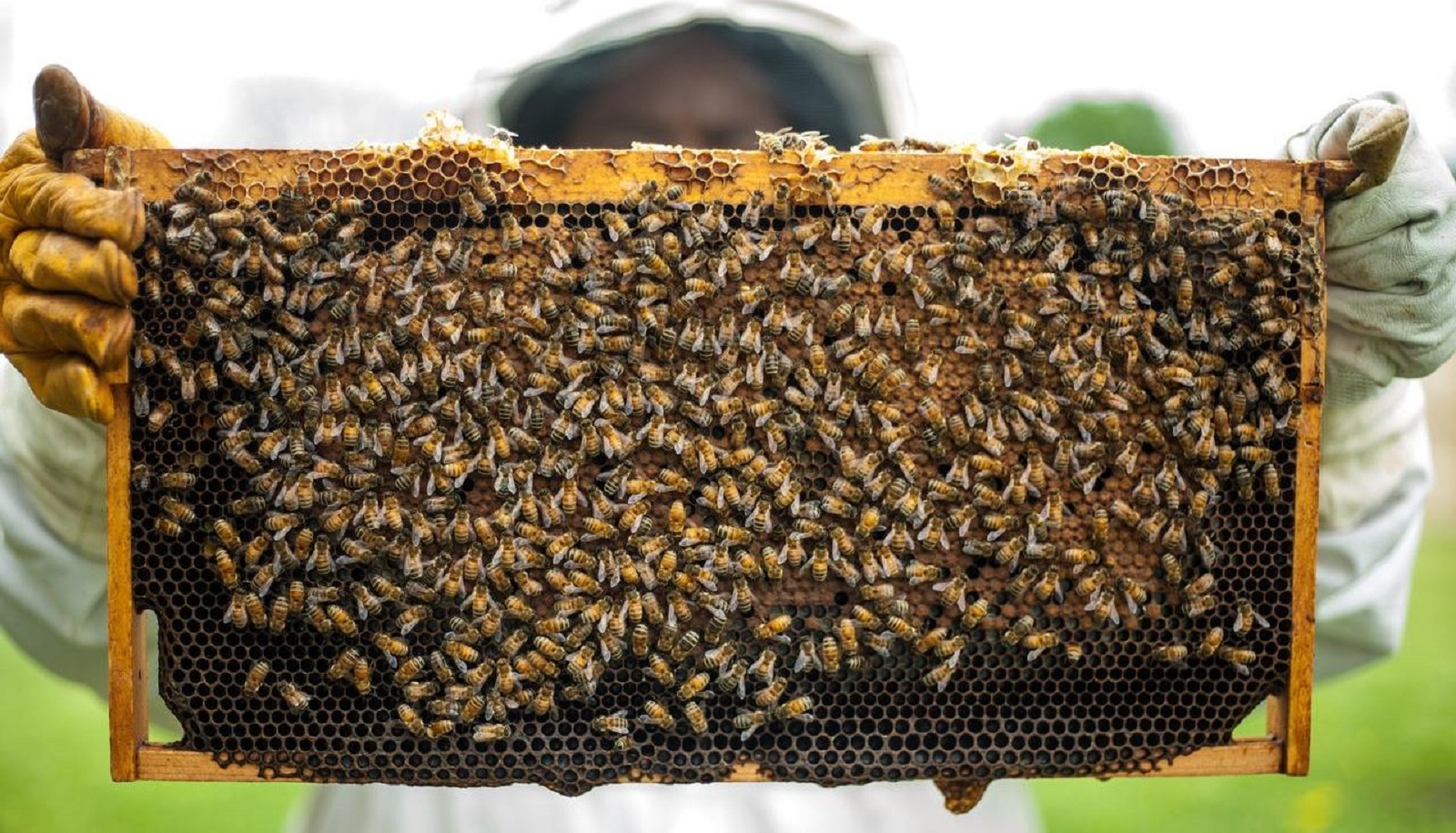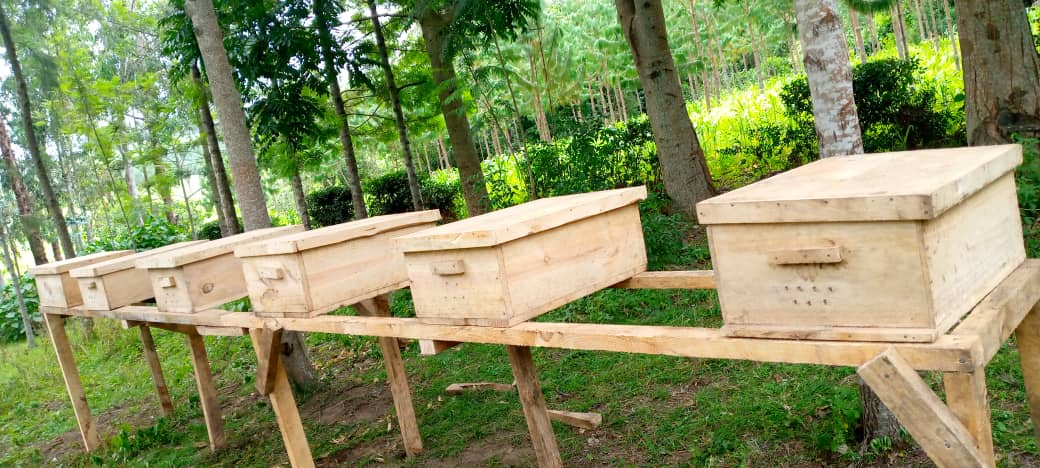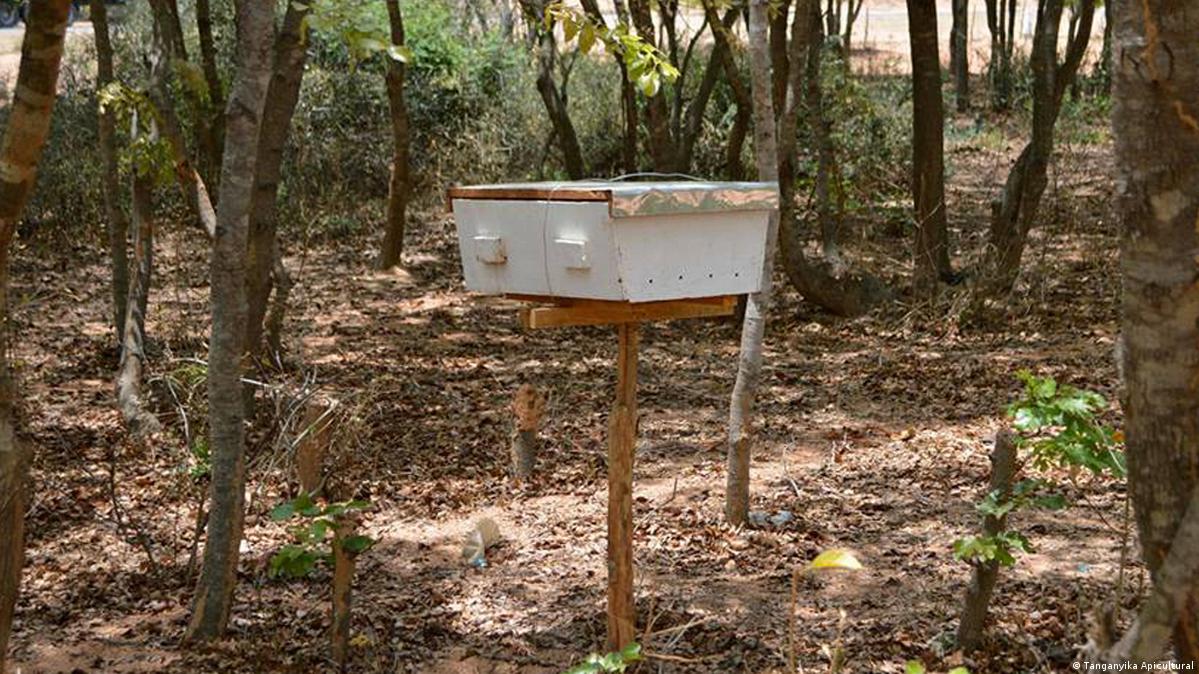Tanzania is Africa’s second-biggest producer of honey, and to get it to the next level, the country’s government and aid agencies want beekeepers to adopt hanging-frame beehive designs to increase their production and income. But beekeepers have been reluctant to abandon their traditional hives made from hollow logs. What do they know that the technical experts don’t?
The latter are promoting hanging frame beehives, a design originating in Europe in the 1800s. These are rectangular hives made out of fast-growing commercial timber species like cypress and pine, into which removable wood frames are slotted that hold the honeycombs. Traditional hives across East Africa are made from hollowed-out logs or bark peeled from living trees to maintain a cylindrical shape.
For a study published recently in Tropical Conservation Science, researchers from the University of Dar es Salaam’s Institute of Resource Assessment interviewed 74 beekeepers from four villages in the semiarid Chemba district of Dodoma, in central Tanzania, about their use of hives. Just six of them used modern hives exclusively. Twenty-four used a combination of modern and traditional hives, and 44 respondents relied entirely on traditional log hives.
Log hives in Chemba are mostly made from acacia trees cut down outside of community forest protected areas, putting additional pressure on woodlands that are already highly degraded from charcoal production, the study says.

Commercial beekeeping has gained significant attention in Tanzania as a profitable and sustainable agricultural venture. The country’s favorable climate, rich biodiversity, and vast expanses of untapped natural resources make it an ideal location for beekeeping activities. Beekeeping not only contributes to the economy but also plays a crucial role in conserving the environment and supporting local communities.
Tanzania’s diverse flora provides abundant nectar and pollen sources, creating favorable conditions for honey production. The country is home to various flowering plants, including acacia, eucalyptus, sunflowers, and citrus trees, which yield high-quality honey with unique flavors and medicinal properties.
Beekeeping practices in Tanzania range from small-scale subsistence operations to large commercial enterprises. Small-scale beekeepers often rely on traditional methods and hives made from locally available materials such as logs or baskets. These beekeepers typically manage a few hives and focus on honey production for personal consumption and local markets.
On the other hand, commercial beekeeping operations utilize modern techniques and technologies to maximize productivity and meet the growing demand for honey both domestically and internationally. These enterprises manage hundreds or even thousands of hives, adopting hive designs such as Langstroth or top-bar hives, which allow for efficient honey extraction and hive management.
The government of Tanzania has recognized the potential of beekeeping as a viable industry and has implemented initiatives to support and promote commercial beekeeping. They have provided training, technical assistance, and access to credit facilities to help beekeepers establish and expand their operations. Additionally, the government has established regulations to ensure the quality and safety of honey products, enhancing their marketability both domestically and globally.
Commercial beekeeping not only generates income and employment opportunities but also contributes to environmental conservation. Bees play a vital role in pollination, facilitating the reproduction of various crops and native plants. Through pollination, beekeeping indirectly supports agriculture, helping to increase crop yields and enhance food security.
Furthermore, commercial beekeeping can have a positive impact on rural communities. Many beekeeping operations in Tanzania involve local farmers who engage in beekeeping as a supplementary income-generating activity. Beekeepers often collaborate with farmers, allowing their bees to forage on farmland, which leads to increased pollination and improved crop productivity.
In recent years, Tanzanian honey has gained recognition for its quality and uniqueness. The country has been able to tap into the international market, exporting honey to countries in Europe, Asia, and North America. This export potential has further encouraged commercial beekeepers to invest in modern beekeeping equipment and adhere to international quality standards.
Despite the opportunities and successes, commercial beekeeping in Tanzania faces challenges. These include limited access to financing, inadequate infrastructure, pests and diseases affecting bee colonies, and climate change impacts. Addressing these challenges requires collaborative efforts from the government, private sector, and development partners to provide training, research support, and improved infrastructure.




